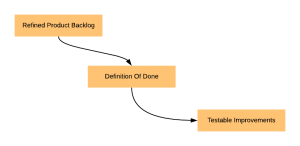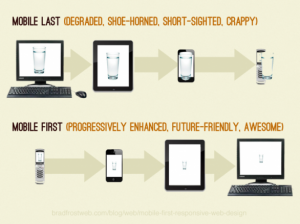I’ve interacted with dozens of executive teams in my career, and it always happens. The seven, 10, or more men and women on the executive team each have an IQ of 160, but their IQ as a team seems like a whopping 22.
Why is the team total always less than the sum of the parts? Why do so many teams seem to drift to a place where the culture is soft on the difficult issues and strained among the people? If there is a single factor that most contributes to the erosion of trust in the workplace (and makes teams seem less intelligent than they are), it is this: the “absence of the assumption of positive intent” of others.
Create Trust at Work By Assuming Positive Intent
Looking at that thought from the opposite side, the one behavior that has the potential to immediately elevate the performance of individuals and teams is “assuming positive intent” of others. Assuming positive intent is the ultimate performance driver, but it is more uncommon than common.
For example (and this is just one of many): A CEO confessed that whenever he worked with his executive team he would tell himself stories about the motives, agendas, and driving intents of his leaders.
It was this assumption of intent that created his reality and basis for interaction with them. As a result, it took the team five times as long to try to get aligned on the most critical imperatives for the business rather than actually working on them!
So you can see how the lens through which you view others’ intents can really color the trust factor—and therefore the whole culture and even productivity—of your organization.
3 Tips to Establishing Trust at Work
Here are a few ways to check your intent meter.
1) Avoid the “other guy” trap.
Most of us are guilty of getting distracted by or frustrated with what someone else should have done. Resist the temptation to make assumptions based on limited information about individual circumstances.
Assuming positive intent gives other people the benefit of the doubt. It replaces judgment with curiosity. Listen with the intent to understand and not the impatience to reply.
2) Stop conspiracy theories.
We have been conditioned to be suspicious. From stranger danger to 21st-century terrorism, we often lean toward believing people don’t have our best interests at heart, and we act accordingly.
In the case of strangers and fear of terrorists, this is understandable; however, relationships flourish when we don’t assume intentions that aren’t there. At work, and even at home, assume positive intent until proven otherwise and watch how rapport, communications, respect, and trust grow.
3) Take away the anger.
Indra Nooyi, chairman and CEO of Pepsi, tells the story of learning the power of positive intent from her father. She says, “When you assume negative intent, you are angry. If you take away the anger, you don’t get defensive and scream.”
When we are calm and levelheaded, we have a higher emotional quotient (EQ), and our ability to collaborate and be productive skyrockets, along with our happiness.
Assumption of intent. Build trust with it, and its impact on your workplace can be massive.
It’s Time to Create New Trust Levels at Work
In fact, assuming positive intent—and thereby creating trust in the workplace—is the single behavior that high-performance teams choose time and again to set as a goal when crafting a new set of behavioral standards for the future. How’s your intent meter reading?
(80)
Report Post









